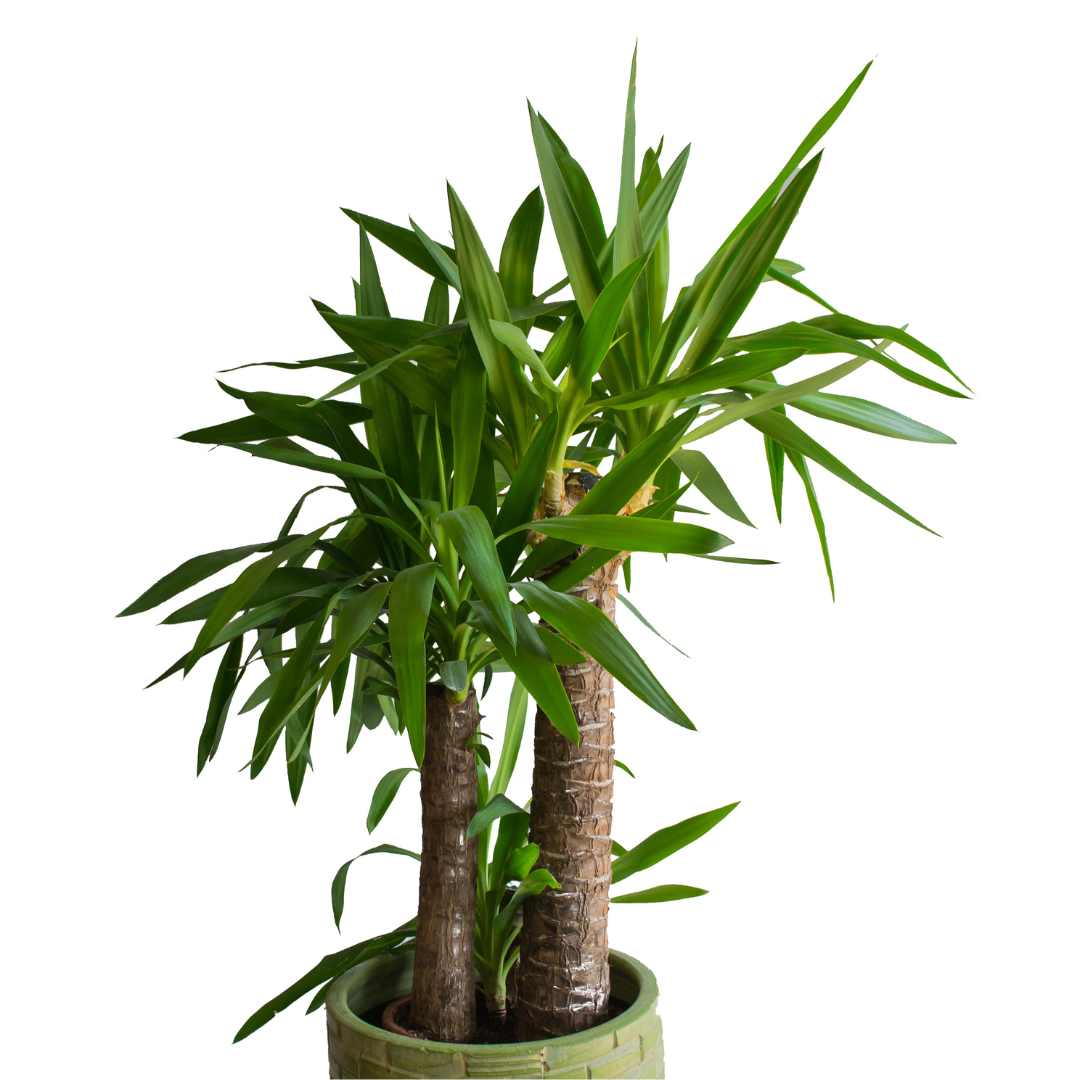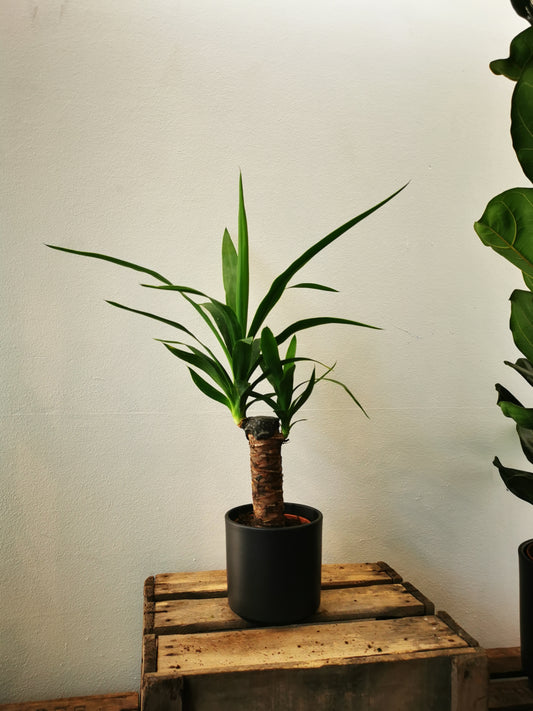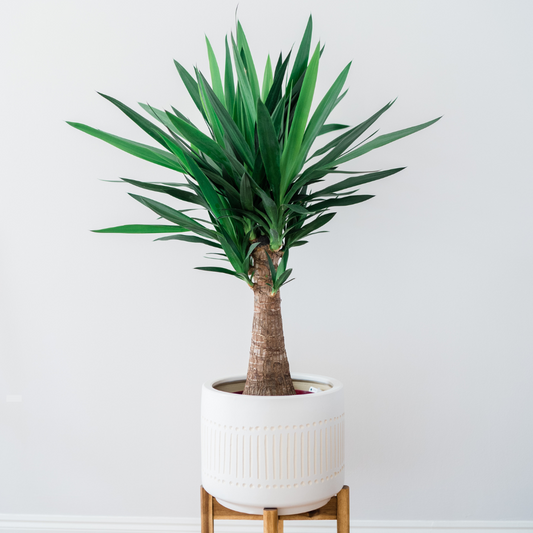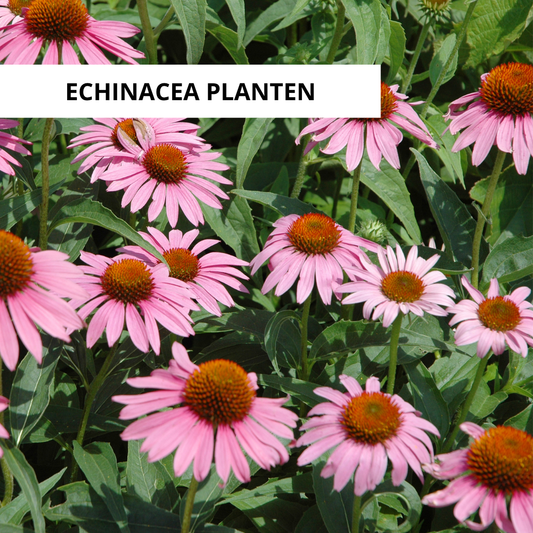
Yucca Care
Share
Yuccas are beautiful, hardy plants that add a touch of desert ambiance to any interior. These plants are not only graceful, but also easy to care for. In this comprehensive guide, we’ll dive into everything you need to know to keep your Yucca healthy and happy.
1. General Information about the Yucca
1.1 Origin
Yuccas are native to North and Central America (around Yucatan, Mexico), where they thrive in dry, sunny areas such as deserts and grasslands. The Yucca’s adaptability to dry conditions makes it an excellent choice for those looking for a houseplant with a touch of exotic flair and a robust nature. Plants that require little water – isn’t that what we’re all looking for?
1.2 Types
There are over 40 different species of Yuccas, each with its own unique characteristics. Some species can live outdoors in Belgium and the Netherlands, others can only survive the winter indoors. Some popular species are the Yucca filamentosa, Yucca aloifolia and Yucca elephantipes (the giant yucca). Depending on the type of Yucca you have, the care requirements can vary slightly.
Some popular Yuccas include:
- Yucca Gloriosa
- Yucca Baccata
- Yucca rupicola
- Yucca schidigera (hardy)
- Yucca flaccida
- Yucca Aloifolia
- Yucca Rostrata
- Yucca Filifera
2. Caring for the Yucca
2.1 Watering
Yuccas are thirsty plants, but they don't like to sit with their roots in standing water. Allow the top few inches of soil to dry out between waterings. In the summer, when the plant is growing more actively, water more often. In the winter, when growth slows, water less.
With the Yucca, it is better to give too little water than too much. The Yucca can store a lot of water in its thick trunk, so no worries if you forget it once!
2.2 Light and Location
Yuccas love lots of sunlight. Preferably place them in a spot where they can receive direct sunlight. They thrive both indoors and outdoors in the summer, but make sure they get enough light to stay healthy.
2.3 Potting soil
The right potting soil is essential to the health of your Yucca. Use a well-draining mix specifically designed for cacti and succulents . This will ensure that water does not sit in the roots.
2.4 Fertilization and Nutrition
Fertilize your Yucca during the growing season (spring and summer) every four to six weeks with a balanced liquid fertilizer. During the winter months, when the plant is dormant, you do not need to fertilize.
3. Yucca Cuttings
Yuccas can be propagated by cuttings. Cut a healthy shoot from the mother plant and let it dry for a few days. Then plant the cutting in a pot with cactus soil. Make sure the cutting gets enough light and keep the soil slightly moist until the roots develop.
We found this video super helpful: https://www.youtube.com/watch?v=EalIUcFDQGg
4. Common Problems
4.1 Yucca Gets Yellow Leaves
Yellow leaves can indicate overwatering or underlighting. Adjust your watering and move the plant to a sunnier spot if necessary.
4.2 Yucca Stem Becomes Soft
A soft stem can be due to overwatering or poor air circulation. Check the roots for rot and allow the plant to dry thoroughly before re-watering.
4.3 Yucca Does Not Produce New Leaves
This could be due to a lack of nutrients or water. Try to fertilize the plant during the growing season and make sure it gets enough light.
4.4 Mold on the Potting Soil of My Yucca
Too much moisture can lead to mold growth in the potting soil. Allow the soil to dry out between waterings and provide good air circulation to prevent mold. However, you usually don't need to worry about white mold on your potting soil.
4.5 Can my Yucca be placed outside?
Yes, Yuccas can be grown outdoors, but this depends on the specific species and the climate zone you live in. Most Yuccas thrive in sunny, dry environments. Provide well-draining soil and protect from severe frost if necessary. We always recommend moving your Yucca indoors in the winter.
4.6 Does the Yucca produce flowers?
Yes, many Yucca species produce beautiful flowers. The flowers vary in color and size depending on the species. Flowering can be sporadic and is usually dependent on the age and growing conditions of the plant.
4.7 Is the Yucca poisonous to cats?
Yes, Yuccas are considered poisonous to cats and can cause stomach upset if ingested. If you have a Yucca in your home and cats as pets, it is advisable to keep the plant out of reach of your four-legged friends. The Yucca is generally not a plant that cats will nibble on. They will rather look for grassy leaves.
4.8 My Yucca is falling over
If your Yucca starts to lean or fall over, this could be due to the top being too heavy in relation to the roots or not enough support. Try supporting the plant with a stick or bamboo stake to help it stand upright. Make sure the pot is sturdy to prevent it from falling over.




